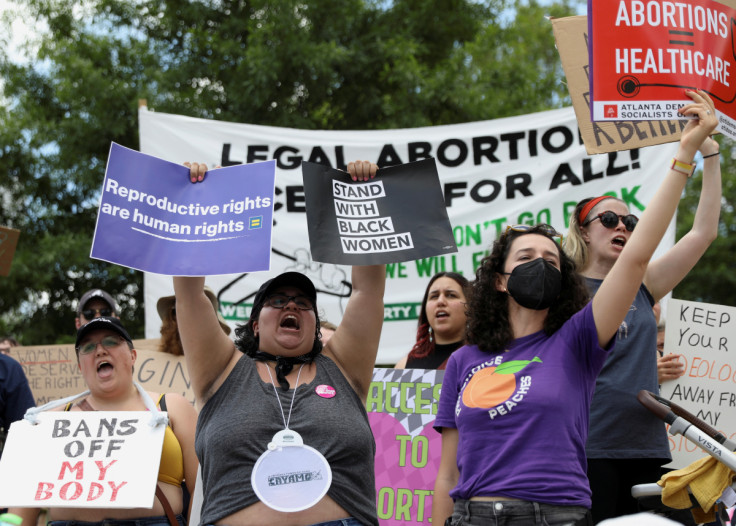Georgia Judge Overturns State's Six-week Abortion Ban

A Georgia law banning abortion after six weeks of pregnancy cannot be enforced, a state judge ruled on Tuesday, handing a victory to Planned Parenthood and other abortion rights groups that challenged the restriction when it took effect this summer.
Judge Robert McBurney of the Superior Court of Fulton County said the law was void at the time it was passed in 2019 under the U.S. Supreme Court's Roe v. Wade ruling, which established a federal right to abortion in 1973.
McBurney said the state would have to pass the law again now that the Supreme Court has overturned Roe for the ban to be valid. The 2019 law was "plainly unconstitutional when drafted, voted upon, and enacted," McBurney wrote in his opinion.
The law banned abortion after fetal cardiac activity is detected, typically around six weeks of pregnancy and often before a woman knows she is pregnant. It made exceptions for abortions to save the mother's life and for rape that is reported to the police.
It had been blocked under Roe, but took effect in July, after the U.S. Supreme Court's June ruling gave states the power to restrict abortion to any extent.
With its six-week ban struck down, Georgia now allows abortion up to 22 weeks, according to the Guttmacher Institute, a reproductive rights advocacy research group.
"After a long road, we are finally able to celebrate the end of an extreme abortion ban in our state," said Monica Simpson, executive director of SisterSong Women of Color Reproductive Justice Collective, the lead plaintiff in the case.
A spokesperson for Georgia Governor Brian Kemp, a Republican, said the state had "already filed a notice of appeal" on Tuesday afternoon, and would "continue to fight for the lives of Georgia's unborn children."
McBurney did not rule on whether the law violated the Georgia Constitution, leaving open the possibility that state lawmakers could pass the same legislation in the future.
Around a dozen states have enforced near-total abortion bans since the end of Roe v. Wade, many like Georgia in the southeast region of the United States.
Abortion rights advocates had argued before the judge in October that the law violated Georgians' fundamental rights to liberty and privacy under the state constitution and put women's health at risk.
© Copyright Thomson Reuters 2024. All rights reserved.




















